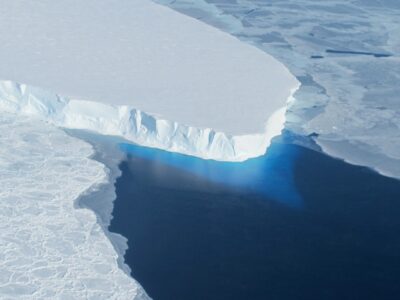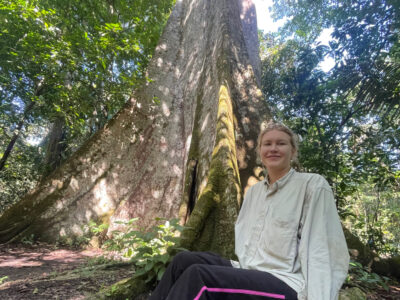carbon
-

A New Study Indicates Forest Regeneration Provides Climate Benefits, but Won’t Offset Fossil Fuels
Effective climate policy must treat forest regeneration and emissions reductions as complementary strategies, not alternatives, according to a new paper.
-

Columbia Will Co-Lead Major Project To Study Global Carbon Cycle
Awarded by Schmidt Sciences, a new grant will provide up to $45 million to four interdisciplinary teams of researchers who will seek to improve climate modeling across land, air and sea.
-

Ancient Volcanoes Once Boosted Ocean Carbon, But Humans Are Now Far Outpacing Them
A new study of the closest ancient analog to modern carbon emissions finds that massive volcanism was the main cause of high carbon at the time. But nature did not come close to matching what humans are doing today.
-

A New Way to Calculate the Price of Carbon Pollution
How to set carbon prices that are consistent with goals of both climate experts and economists.
-

New Model for Pricing Carbon Will Help Meet Net-Zero Climate Change Goals
A new approach to carbon pricing avoids the pitfalls of calculating the social costs of carbon.
-

Drilling the Seabed Below Earth’s Most Powerful Ocean Current
Starting this month, scientists aim to study the Antarctic Circumpolar Current’s past dynamics by drilling into the seabed in some of the planet’s remotest marine regions.
-

What Happens to All The Carbon We Emit?
A new website provides an interesting and easy-to-understand primer on the carbon cycle.
-

North American Coasts Are Absorbing Large Amounts of Carbon
Coastal waters play an important role in the carbon cycle by absorbing carbon into sediments or transferring it to the open ocean, a new study confirms.

By studying thousands of buildings and analyzing their electricity use, Columbia Climate School Dean Alexis Abramson has been able to uncover ways to significantly cut energy consumption and emissions. Watch the Video: “Engineering a Cooler Future Through Smarter Buildings“

